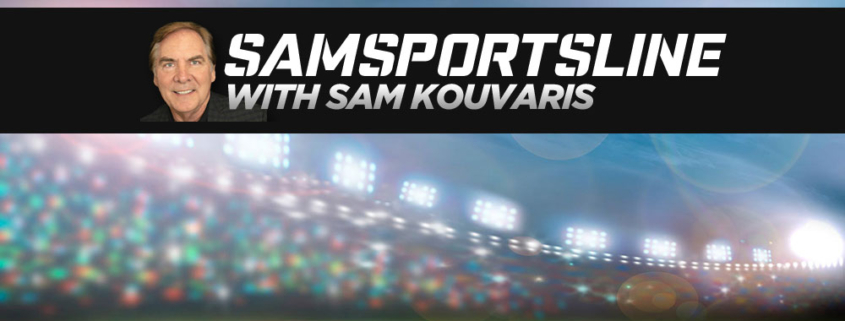Dad
My Dad throws like a catcher. Kind of a short stroke, not much follow through. I have been on the receiving end of his throws many times. Mostly baseballs, but footballs too, the occasional Frisbee or nerf ball, all thrown with that short stroke.
I’m lucky to have been on the receiving end of those throws.
After school and my paper route, I’d while away the time in the front yard, playing curb ball, throwing at the six short bushy pines that guarded the front of the house (Raymond Berry and Jimmy Orr were the two on the ends, John Mackey in the middle, Lenny Moore stood right next to the stairs, and other unidentifiable Colts filled out the rest).
Like a million other young boys, I was waiting for my Dad to come home from work. He’d drive up; the catcher’s mitt would already be laid out near where his car door would open.
I’d fire my best fastball and hear the occasional, “you’ve got to back up, you’re hurting my hand!” Which, of course, would make me throw all that much harder.
My Dad, in IBM issue white shirt and tie, dark pants and wingtips, caught my first curveball, saw my first failed attempt at a knuckler, and laughed at my imitations of Jim Palmer, Luis Tiant and Juan Marachal.
“Let me go see what you’re mother’s doing,” usually signaled the end of our session, but never before an encouraging “I think you’re going to win the Heisman,” or “you’ll take over when Brooks retires” was mentioned as he bounced up the front steps.
The youngest son of immigrant parents, my father and his brother were the only siblings born in the United States. My Grandfather stowed away numerous times on ships out of Greece before finding a suitable place to bring his family. Known as “Gleeka” (The Sweet One), he finally settled on Baltimore leaving behind a hard life in the Greek islands. By trade, he was a housepainter, a steeplejack, but actually, he spent his time making wine from wildflowers, growing figs and grapes in the small backyard of his row house in downtown Baltimore, playing double pinochle at the coffee house, and watching over the neighborhood, making sure other Greek immigrants had a place to stay and enough to eat while they got on their feet.
My father learned a lot of lessons from his dad early on. They didn’t speak English in the house, and everybody in the neighborhood was Greek. “Two eggs and a bacon,” was the extent of my grandfather’s English, although he never had any trouble communicating. When my father came home from school with a vocabulary test in the first grade, he had no idea what the words meant. “What should I do?” my grade school Dad asked. Rather than march to the school and demand he be taught in Greek or some other silly solution, my Grandfather (Popou in Greek) logically responded, “Learn English fast.” Understanding the power of an education, my father kept his nose to the grindstone (mostly) eventually graduating from Johns Hopkins using the GI bill.
I saw some of these things as a kid, but most I know from stories my Dad has told me. He’s the best storyteller I know. With a bent toward hyperbole, he takes poetic license, as all good storytellers do, but never deviates from the truth. Many times I’ve heard stories about my grandfather fighting the Turks and the Nazi’s. About the first time he met my mother (on an ice skating rink) and about the day I was born.
No matter how many times he tells me that one, it’s always with the same emotion, the same passion. How he and another guy were in the waiting room (long before they allowed husbands in delivery) and decided when their kids were born to go across the street to the “House of Welsh” to have a drink. But when the doctor called the other man to the corner of the room to say his son had died at birth, those plans faded away. And how he decided to name me after himself, (my mother’s idea) and not after his father (his dad’s idea.) And how it was one of the four best days of his life (I have two sisters and a brother.) I never really understood that story until I had children of my own, and now the passion and emotion he tells it with makes complete sense to me.
My father has never been rich, yet he says he’s the wealthiest man in the world. “I have four great children who have never given me a day’s trouble,” is his answer when asked how successful he’s been.
I had a friend who once said to me “you Greeks have the weirdest combination of machismo and sensitivity in the whole world.” That about describes my Dad perfectly. He’s ready to fight if necessary, but is much more interested in compromise. I’ve seen my Dad cry, but not often, and I’ve seen him pretty angry, but not often.
I’m lucky to have witnessed so much of this with my father. Some of my friends never knew their Dads; other’s lost them when they were young. I’ve had a relationship with my Dad as a kid, and as an adult. His business advice has been sage, his personal words wise. Like most men of his generation, he doesn’t like the modern-day ball player, and doesn’t see much on television that appeals to him, except on The History Channel. I told him the best invention ever for him was the remote. “Now if I don’t like it,” he beams, “I just change it.”
“As I got older, somehow my father got smarter,” my Dad used to tell me through a laugh.
You know what Dad?
I think you’re a genius.



